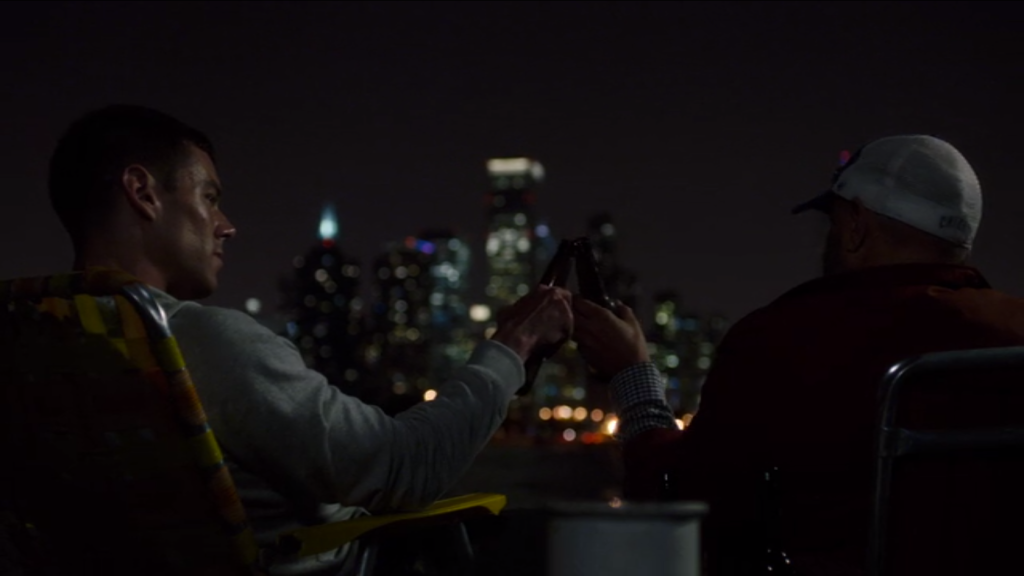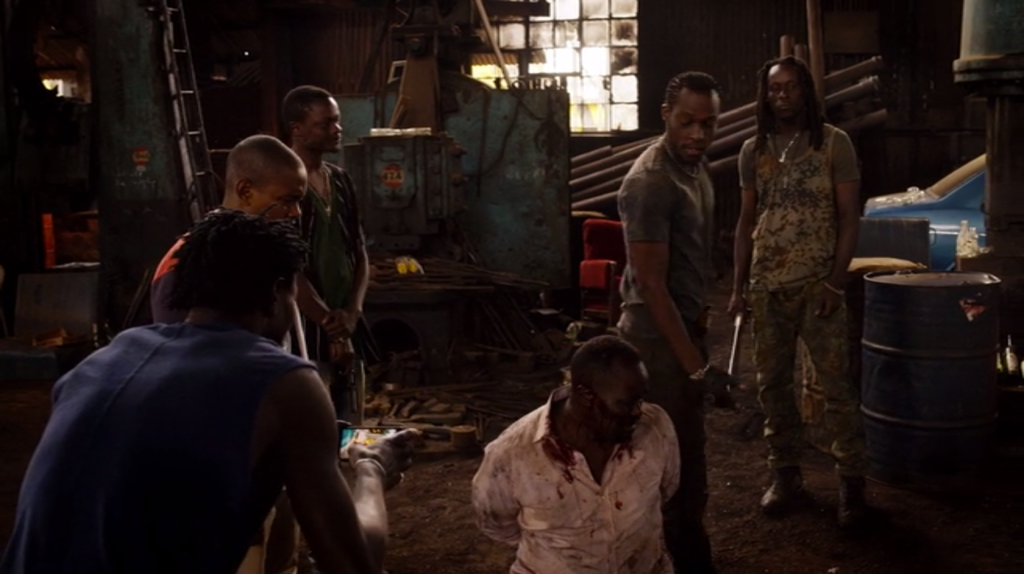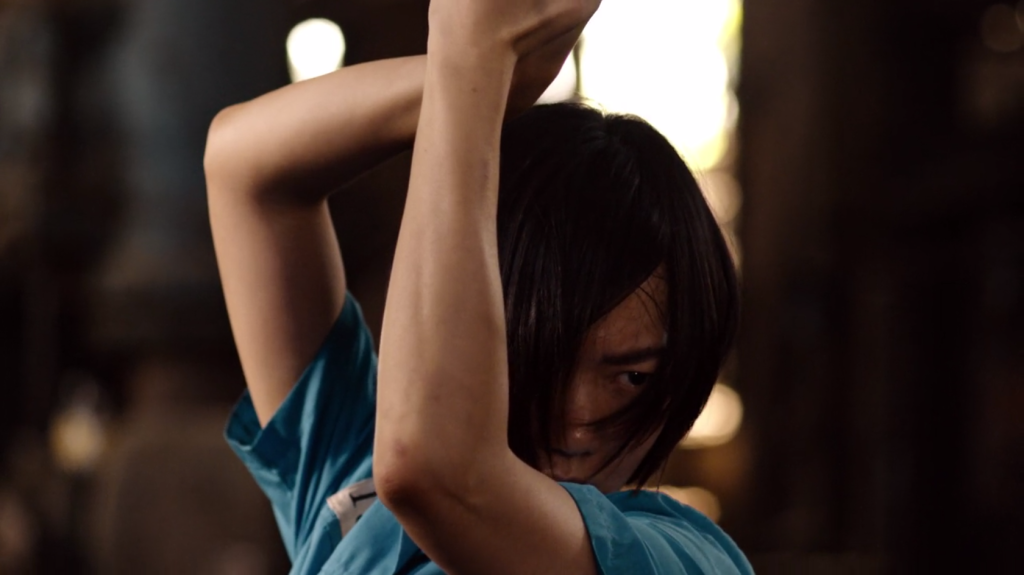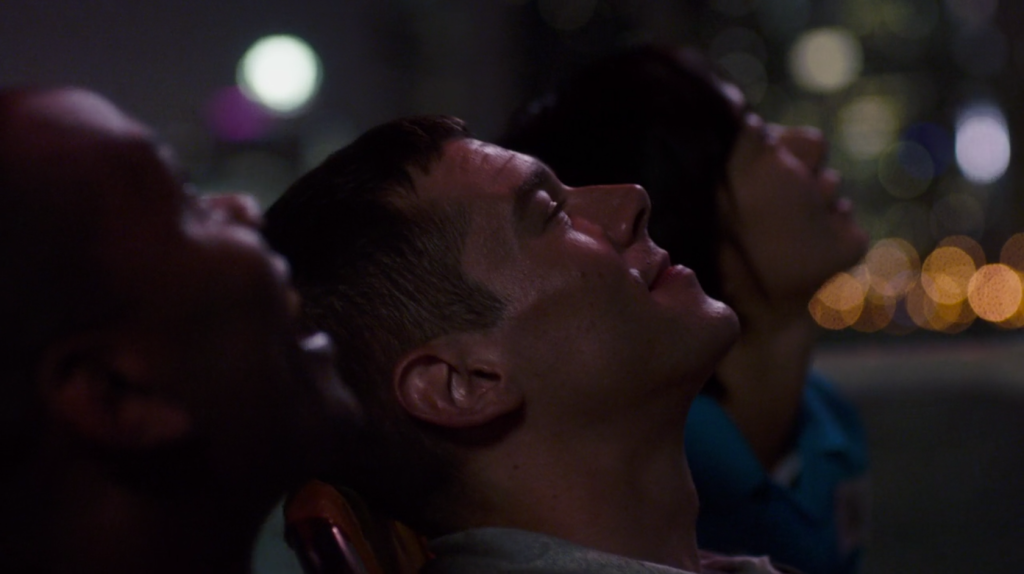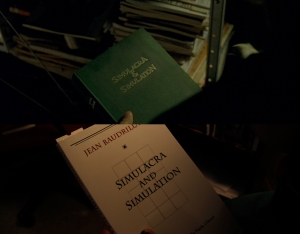***Trigger warning: this essay contains reference to suicide, PTSD, self-harm, and other heavy life things. There are also spoilers throughout the essay. I’ve marked most of the bigger ones. You know the drill. And now: my first movie review!***
I’m wondering how many other Trans* filmmakers, who have never dared to produce their own work out of fear or self-loathing, have stayed up until dawn for sobbing while watching #Sense8 for three consecutive nights.
Without representation language cannot exist. Without language there is no way to communicate. Without the ability to communicate I have been left with thoughts, feelings, and visions stuck inside my body. I’ve been left with nothing but the feeling that my mind is a tomb for all my unrealized dreams.
I’ve spent my life translating myself into symbolic structures, genders, social constructs, that felt foreign to me. Without points of cultural reference, what else was there to do? Without Trans* representation in the cultural fabric of the world, I’ve continuously abandoned my identity, only understanding life as what is already present and seen. What I believed was possible could only be realized within the confines of pre-existing media. This has meant that in order to tell a story, I could not tell my own. Without that personal link, without an identity or self as reference to bring fantasies from my world into yours, my dreams could never materialize.
This has meant never believing my own senses, never trusting that my reality is in fact tangible, never living life as if it is something to be shared and appreciated with others. This is the product of watching The Matrix nearly every week for two and a half years–right at the start of puberty–when all I knew was that something deep inside me was screaming to get out.
“I know why you’re here, Neo. I know what you’ve been doing… why you hardly sleep, why you live alone, and why night after night, you sit by your computer. You’re looking for him. I know because I was once looking for the same thing. And when he found me, he told me I wasn’t really looking for him. I was looking for an answer. It’s the question that drives us, Neo. It’s the question that brought you here.” – Trinity, while she still has her independence as a single woman in The Matrix
Where was “he”? Moreover, who was “he”? Who did name him? Was he my father who left when I was young, who sought his own deceased father in a spiritual Master? Who still seeks to this day? Certainly I looked for him. I felt our silences when we ran out of things to say after spending hours with our ears glued to phones, missing each other. There, I learned silence was only the absence of words, not the absence of love and presence.
“He” was not my father. Was “he” the man I strove to become as my chest, pubic mound, and legs began to sprout dysphoric-nausea-inducing hair? My stepfather who bared himself to me repeatedly, exposing me to maleness in what he believed was its rawest form, prophesied my ascent to manhood. Prophecy foretold that as my penis grew: I would be the one become a man.
Then my stepdad died with a tumor eating his gray matter, while my mother switched to Buddhism. There is no spoon/tumor/husband/child. No(thing)
Perhaps “He” was Neo. I reenacted scenes from The Matrix with the “other boys”, doing my best Keanu impressions. Also being a Virgo, I might say that I did a fair job despite being thirteen and… not actually male. (Wearing sunglasses helps because you always look intense with sunglasses on. Especially if they’re weed sunglasses.)

Conan, what is best in life? – To crush your enemies, see them tremble before you!
Oh, the things we learn from movies.
This hyper-real gender was one I wholeheartedly accepted and idealized, accepted as a truth because there was no alternative. “He” was a dream image of a gender I could never embody. “He” represented the primal sense of unease I felt about “Him/His”, possessing a body that felt like anything except my own. “He” was hyper-real, a product of simulacra, a collection of gendered signs replicated endlessly by the spectacle of patriarchy to perpetuate itself in its own image. “He” was the one that gave me the feeling. Neo’s denial of “oneness” mirrored the denial of my socialized gender.
After a lifetime of medical/parental/political/social abuse, this violent language started to cut into my skin. Their wounds were far more than skin deep. The worst were those that were self inflicted.
So I was left silent, with little more than a few scars and an all encompassing feeling of nothingness.
A sense of negation, a total rejection of self and of life, like carrying around a corpse inside my skin. That feeling, which I now understand as gender dysphoria, helped me relate to Neo’s quest for truth. I can’t help but read into Neo’s process as a reflection of Lana’s search for an ideal form of Self expression pre coming-out. Is it any coincidence that Sense8’s Nomi, also a badass computer hacker, is Trans?
“Isn’t The Matrix one of those films which function as a kind of Rorschach test, setting in motion the universalized process of recognition, like the proverbial painting of God which always seems to stare directly at you, from wherever you look at it–practically every orientation seems to recognize itself in it?” (Slavoj Zizek, The Matrix: Or, The Two Sides of Perversion)
Dysphoria was a feeling I saw buried deep within the constructs of Hollywood’s massive budgets, of closeted identities, of confused signs woven into an intricate lattice. Maybe I was buried in there, not “him.”
It is now sixteen years later. I am twenty two. My Mac’s SSD, as minuscule as it is by modern standards, holds an entire lifetime of thought contained in my latest screenplays. Despite my anxiety’s worst intentions, my words have escaped my body. They find themselves in the eyes of lovers, of skid-kids that hate the world as much as I do, of people who feel safe enough to share my thoughts with. People who speak the same language, share the signs of our existence: scars, stories, pizza, dumpstered vegetables, beer, orgasms, and tears.
My scripted words are not yet images because my disillusioned eyes are still atrophied from a lifetime of internalizing ideas that tell me I can not exist. I am beginning to believe what I see, and beginning to feel that the life I live is in fact real, and something to be communicated to others. Others who do not yet believe that what they sense is in fact real. Others who still deny themselves out of a lack of safety, in this wasteland of capitalist bullshit we call city life. (Insert Plato’s Cave metaphor here)
Othered folk are not kept hidden by lack of representation. They are kept hidden by misrepresentation. Signs that render Othered bodies as dangerous, undesirable, or anything other than what they are, which is to say, anything but free, natural, or living. People of color are killed most often in films; Transfolk are rendered as pathetic or disgusting; non-hetero sexualities are framed as misguided and unreal, and so on and so on.
The most common cause of misrepresentation is media being created by writers/directors who have no personal reference to the subject matter. They are left to infer what the lives of Others are like, often with little to no research. What’s worse, is that many directors don’t give a fuck about doing research, and assert their vague impressions of other cultures as reality. This is akin to mansplaining–in popular feminist terms–only the issue extends far beyond gender; it affects race issues, class issues, Queer issues, and a whole host of other oppressive scenarios that the mainstream actually supports… Even in cases where there clearly has been a lot of research, that research is never complete, and can therefore never be realized as truthfully as lived experience.
Why does this keep happening? Well, most successful filmmakers are still white-middle/upper class straight cisgender males, and they need subject matter that extends beyond what they have experienced, culturally or literally. And from my perspective, I don’t blame them entirely, because their lives are probably fucking boring.
“In societies where modern conditions of production prevail, all of life presents itself as an immense accumulation of spectacles. Everything that was directly lived has moved away into a representation… Reality considered partially unfolds, in its own general unity, as a pseudo-world apart, an object of mere contemplation. The specialization of images of the world is completed in the world of the autonomous image, where the liar has lied to himself. The spectacle in general, as the concrete inversion of life, is the autonomous movement of the non-living.” (The Society of the Spectacle, Guy Debord)
The Spectacle utilizes signs to blind us all from all the beautiful little truths of life–truths we can discover just by exploring and asking questions. It does not want us to ask questions or have experiences outside its definitions of “normal.” It blinds us from discovering not only what is real and hidden, but also from that which is not yet real, and is so because the very possibility of its existence is hidden from us. In this light, what is already real and what is possible are one and the same: obscured, lost under the waves of signals in a world drowned in noise. Patriarchal ideals ossify the lives of those that live in opposition to them. Without seeing or feeling what is possible through alternative representations, we do not grow, and without growth there is no life.
So when someone other than a heterosexual cisgender male directs Hollywood films, are they inherently “radical” in their “progressiveness?” What if that person is Transgender, and has experienced violent oppression within her lifetime based on her identity?
The world of Sense8 is one that evidently seeks to expand our notions of identity beyond Otherness into a radical embrace of human life in all its variegated forms. “You are no longer just you.”
But does it ultimately succeed? Take the red pill with me, let’s find out.
Some notes on style and subjectivity: I’ll say that my motivations within the scope of this essay are informed by my deep personal attachment to the Wachowski’s work, my identification with Lana as a Transgender filmmaker, and the fact that I’ve been searching for positive Transgender representation (specifically in reference to assigned-male-at-birth characters in films) since I came out over three years ago. For these reasons, I have a lot of feelings about this show.
Typically, personalization is seen as a detriment to critique of any kind. Especially within academic circles. Thankfully I’m a university drop-out, so I’m free to say that academia is by and large a function of capitalist patriarchy. Its methods of channeling knowledge into economical hierarchies often ruin learning. Within those channels people often lose their sense of individuality, becoming less like themselves, and more defined by the titles ascribed to them. They’re taught things that what will help them make money. Not what will help them live their lives more fully. That, or their lives are ruined by crippling debt. Or both. Listening to the lived experience of most students will confirm this.
By making this essay personal, I’m claiming my own space within a field dominated by dogmatic rationalism and bigotry, where opinions only matter if you’ve earned yourself a degree in Cultural Theory. fuck all that. if i talk about theory at all it’ll be using quotes from books that i stole from giant corporations or bought at local anarchist bookstores. up tha punx 666 acab 666
***INTERMISSION***
Despite its blatant political overtones, most reviews of this show ignore politics entirely, instead focusing merely on plot structure and characterization. If politics come up at all, they’re referred to as, “supra-humanitarian ideals” or “kernels of ideas.” Within that narrow scope, of course the show falls short. But judging a show based on that alone is like judging a painting solely by its color palette, ignoring form, style, and overall intent. Here, I intend to look at as many sides as I can.
Many of the characters’ situations are very shallow or even stereotypical. In Sense8, the characters struggle to differentiate themselves from the influences of their parents and tradition: Kala is an Indian woman who wants to please her parents by marrying; Will is a cop with a heart of gold who chose his career to reflect his father’s; Riley’s career as a DJ is a hollow shell of her father’s career as a classical pianist; Wolfgang’s criminal lifestyle is motivated by his childhood rebellion against an abusive father; Capheus works with a gang-lord specifically to help his mother–and so on and so on.
The moments where the writers are not projecting their notions of what life is like as an East Indian pharmacist, or as a Latin American actor (who’s on the most stereotypical show imaginable), or as an African bus driver (who absolutely adores Western culture), are the moments that actually come across as genuine. Like everybody’s favorite actual Transwoman character played by an actual Transwoman: Nomi.
Then there’s an evil corporation doing an evil thing. Grey-haired villains wearing overcoats, everyone has to come together to stop them, etc.
Fuckin’ smash-my-head-into-my-brand-new-computer-screen boring.
Howabout the cinematography and editing? Decent, but there are some cheesy effects in Episode 3, and there are a lot of over the shoulder reverse shots with badly synced dialogue. The conversation between Will and Jonas in the museum is the first example that comes to mind. Overall, Sense8 looks pretty much like every other show out there, and there’s plenty of lipstick and rainbows to go around with the CGI blood.
So let’s look at the symbols at work: maybe there’s hope there. Every institution within the show represents a facet of an industrial complex, or a section of Capitalist society. Prisons, the medical system, whatever. All the villains: mobsters, parents, businessmen, doctors, agents, cops, all represent distinct social roles and morality, yes? Identities, even? They live their lives the way they’ve been taught, don’t question it, and shame the characters as they diverge from the norm. The more the characters refuse authority, the more oppression rains down upon them.
To understand the play of signs at work, let’s start by following Nomi’s path: she refuses her meds, so the nurse gets the doctor. She bails from the hospital, so the doctor gets security. She evades security, so now the even scarier doctor is looking for her. Dr. Matheson, as is mentioned in Episode 10, “has many names.” Whispers works for a gigantic corporation that has its tendrils gripping the police force, all kinds of money, surveillance, and he has a direct relationship with the parents of the cluster. Matheson hunts her down personally and tries to get inside her head to reach the rest of the cluster through her.
Why, in the name of Emma Goldman, is he called Whispers? Well, he whispers, duh. What function does that serve?
Whispers represents the covert policing at work within the Panopticon, a prison where a single guard has the ability to observe all the inmates simultaneously. Naturally, the guard does not actually see everything at once, but the ultimate effect of constantly being watched forces the inmates to police themselves and each other out of paranoia. Like suburban housewives gossiping about a strange neighbor that moved in across the street.
The fact that Whispers is a figurehead within the medical industrial complex has pretty clear connotations for Nomi: He wants to exploit her mind and body for his own purposes, before destroying her personality with a lobotomy. As a transperson who’s struggled with huge barriers to healthcare, I can say that this commentary is relatable.
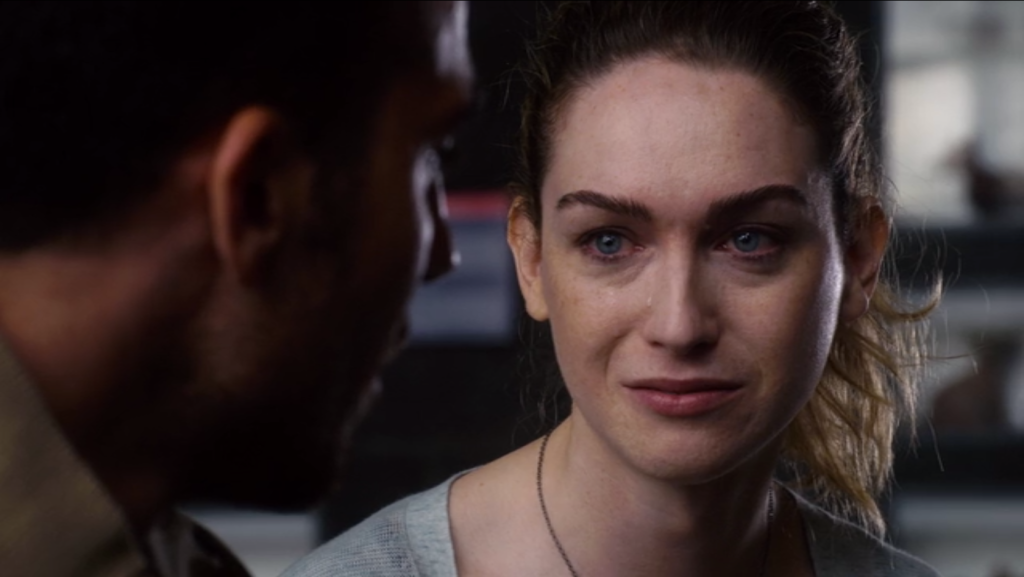
“Those monsters…” – “That locker room might have made my father the man that he is, but it also made me the woman that I am. After that, I quit the swim club, quit trying to fit in, quit trying to be one of them. I knew I never would be. But more importantly, I wanted to be able to talk to strangers for hours about my past using my newly developed superpowers.
Now that Lana is out, she’s evidently making as many speeches as possible. More on that later…
Notions of privacy/surveillance come up again in reference to Lito’s career, as he struggles to maintain his secret despite being constantly observed by fans. The big threat of being outed through social media extends this lack of privacy to mirror the transparency of internet culture, where our most private thoughts are easily made public. By choosing love and his identity over his privacy/career, Lito overcomes his anxieties. Hello again, Lana’s life. I’m not actually suggesting that it’s that simple for Lana IRL, but there it is.
With all the anxiety in the air–whispers in the wind, even–it seems that Whispers embodies the anxieties of life in a world of constant policing and oppression. His voice mirrors the voices of anxiety that never let up, slithering in with suicidal ideation and denial at every turn in the road.
“Enough. I know you. You are a police officer, you’re sworn to protect people! It’s in your blood. It’s in your heart.” Again, biological and social determinism pushing back against Will’s will (heh, see what I did there?)
Angelica’s sporadic presence in the show functions similarly, reminding all the characters of their possible fate. Because Angelica’s Otherness led to her death, each of the characters must strive to shape their own futures and survive in spite of the past–or die trying. Riley’s triggered moments on the hills of Iceland reflect a trauma survivor’s terror upon re-entering an emotionally charged space. She can’t leave her past behind as long as she believes she’s alone on that hill. She was “meant” to die there.
But then the power of looooooooove prevails! Right?!? With all the couples in the show you’d think that love has something to do with it?
Nope. Sorry. It’s harm reduction. Riley–who’s been vaping hash for the whole show–knows as well as anyone that sometimes you just need a drug to get by. Here, being stoned and alive is better than being sober and killing yourself. (Make the Whispers go away!) Hell, sometimes drugs can even be magical healing experiences, like during the ecstatic symphony. *super spoilers* Will’s need for a constant drug-induced sleep is a measure of harm reduction. Without the drugs, everyone would be found and killed. *end spoilers*
Interesting… If you’re not into politics: maybe not so much.
The show’s a little bit muddled, which I believe is an effect of the Wachowski’s trying to fuck with our heads. Halfway through the series the action and dialogue totally wanders into B-Movie territory. I thought, “Fuck, did they just totally lose it while writing the show? The first six episodes were totally solid, and then everything cheapened and died…” Information dump after exposition after more information followed by some weird stereotypes and too much slow motion. I spent most of the episodes 9 and 10 yelling at the screen, because I couldn’t believe how bad it was getting…
And then this happened:

During Leto’s birth, his family watches the TV instead of attending to the mother. Spectacle eclipses life.
The way to combat the catastrophe is through acts that interrupt this drifting towards the catastrophic “fixed point” and take upon themselves the risk of giving birth [emphasis added] to some radical Otherness “to come.” (Slavoj Zizek, The Year of Dreaming Dangerously, p.134)
Perhaps the Wachowskis and Straczynski have been reading some pretty intense theory, and they used self-parody to comment on indifference within mass culture. They insist that they’re radical, what with their adaptation of V for Vendetta and Anarchos Productions company and all. Let’s give them the benefit of the doubt, just for kicks…
At first glance, these character motivations would clearly fuel the plots of soap operas–not highly refined serial media with a political agenda. However the lack of narrative cohesion may still have a sense of logic to it. If the above connection can be assumed as true, then each of these characters struggles to break away from history, familial influence, and tradition. Sensates are meant to be accountable for their actions in the present, with an eye to the future, not acting based on a linear progression. There could be some correlation between disjointed narrative structure and the instability of history, if you think about it.
It is so simple a thing, just turn the wheel and the future changes.—Kala
In this light, the show is ultimately comes to focus on the symbolic tension between Others and the systems of power that demonize them. So this isn’t your average mystery serial. Foucault fans could totally get into this. Must be “high art”, then.
Wait. But the show is composed mostly of: giant psychic orgies, drugs, and… what’s that, Marilyn Manson? Oh, right. Don’t forget the violence. Yep, that song was on The Matrix Reloaded soundtrack, and I am a giant nerd.
Maybe it’s not “high art?” but it’s trying to pass as such? An even better question would be: does that even matter outside the context of market value, or speak to anything about the will to create social change with the power of collaborative creativity?
Whatever, we were talking about things that go boom.
Violence is ubiquitous in cinema, and here is no exception. Gendered violence takes the forefront in the show’s overall political commentary, with a whole bunch of other violence… that just kinda happens. Then there’s more violence that extends beyond the show’s plot and into some pretty serious broad-scale cultural erasure… Harsh vibes.
The show is rife with moments of violence-as-empowerment, which is a pretty sensitive issue. Within the context of gender and revenge against abusers, bashing back can be the most appropriate course of action…
Here are some PICTURES because I’m sure you’re tired of staring down a monolith of text.
Episode 11 is pretty heavy handed with its critique of gender.
Set up: Here, Capheus goes to this dude’s place to try to settle a feud. He proposes that they fight it out, “Like men.” The response? He swings is sword in Capheus’ face, psyching him out.
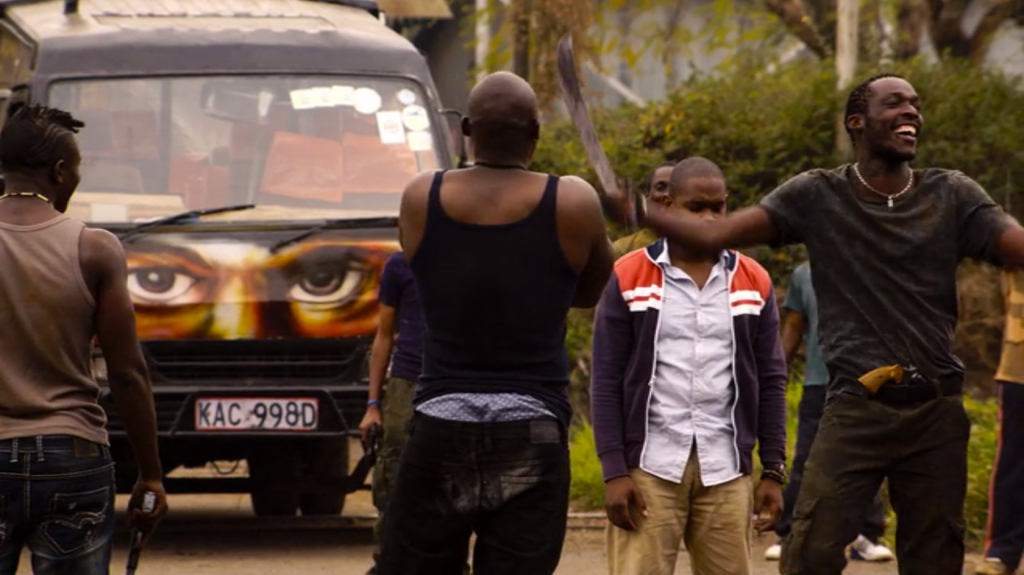
LIKE MEN, LOL! YOU THINK GENDER IS HONORABLE!
Also, note the male gaze as represented on the van. Masculinity’s expectations follow them wherever they go.
Serve: He likes Capheus’ boldness, his balls, if you will. Brings him inside to make a deal, like a proper businessman.
Volley: Gendering Kaias as female throughout the scene, he establishes the whole female gender as weak–one to be domesticated using violence. Capheus is asked to kill Kaias to settle their debt.
Game, set, match: Capheus hesitates… Clearly doesn’t want to decapitate anyone. Sun shows up, gets called a bitch, and slices everybody up… All while looking totally badass:
By mainstream media standards, female violence is not even a new thing.
So whatever.
For Wolfgang, being himself meant fully becoming a monster, embodying patriarchal ideals: “You said your blood is in my blood. So is his. My father was a monster. And so are you. And so am I.” Monsters are also in the previously posted scene between Lito and Nomi, and with young Will. All the parents are monsters.
So, that’s… sortof interesting. But there’s way more to violence than gender. This show misses that entirely, as the fabric tears at the seams of race and class.
As soon as I started getting optimistic about Sense8, a partner directed this to my attention. The short of it, is that Lana said some blatantly racist shit during a speech at the recent Trans 100 conference, and she has not apologized for her errors or responded in an accountable fashion. Naturally, communities of color are pissed. Many folks are boycotting the show as a result of her actions. You can find her speech around the 2:15:00 mark in this video. I’ll talk about it for a while here with direct quotes from the speech that form a pretty terrible picture.
As I am at least ten kinds of white, I will be unable to speak to the effects of racism and colonialism out of lived experience. I can only study their effects by paying attention to the experiences of people of color and Indigenous folks, and acknowledge that it is best if I refer to the authority of the respective groups. Ie: communities of color are the best folks to listen to when trying to understand what their lives are like. And don’t speak for them if you’re not part of that group.
Some things I’ve read suggest that white folks can help by calling each other out. People of color often bear the responsibility of calling out racist behaviour, despite the fact that they also feel its most negative consequences. That’s fucked up and it needs to change.
As white allies and accomplices, we should do what we can to lessen that burden. Therefore, I will aim to keep my commentary here succinct, and direct attention to voices of color whenever possible. My aim is to address the issue of race within Lana’s speech, and her larger body of work, in an accountable and open fashion. If I step out of line in my analysis, or otherwise offend anyone as a result of unchecked racist tendencies–ideals unavoidably absorbed growing up white in the Western world–I invite you to call me on my shit. Regardless, I’ll do my best in continuing the process of unlearning.
So it begins:
Lana mentions that she is privileged and “white, wealthy, and able-bodied.” This seems like she is acknowledging at least some sort of self-critical process. Good.
“Violence directed at difference, be it the color of one’s skin, one’s religious beliefs, one’s sexual or gender identity, is commonly and casually validated by indifference. Violence of indifference.”
To varying degrees, depending on one’s position in life, yes.
“And yet, I know African Americans who, if they’re given a chance, will vote for bathroom legislation to restrict people like me from using them.”
Racial oppression and Trans/Queer oppression are *different types* of oppression, and they can affect someone in varying ways depending on that person’s intersections of privilege and marginalization… Just because Trans folks and people of color are both seen as Others in society, that does not make those oppressive forms conflated or equal in anyway.
“Passing… People of color have just begun to come through this struggle with struggle with this word. When a person of color wanted to pass as a white person, they were using the same language, the same lessons that I learned. That there was something less than or wrong with brown or black skin. They valued being seen as white, and all the privileges that identity accorded them over being seen as a person of color… If you could pass as white, why wouldn’t you want to? If you could pass as white you could use the bathroom whenever you want to. If you pass as a man or a woman, you could also use the bathroom. ”
Sharing struggles over public bathrooms does not make two entirely different sets of experiences all that relatable. Being a person of color or Trans can both potentially be complicated and shitty, but racism and transphobia do not always have all of the same effects. If they have the same effects, you are in a sense suggesting the causes themselves are interchangeable. Transphobia was not the cause of slavery. White people caused slavery. Victims of anti-trans violence are also at higher risk of harm if they’re also a person of color.
“I didn’t want to be seen as a cis-person any more than say, Cornell West or Malcom X would have wanted to be seen as a white person.”
You don’t know what it’s like to be anything other than white, so you cannot assume how Cornell West or Malcom X felt about their skin color.
“Being Trans not only a beautiful thing, but an important thing, and I’ll tell you why: the LGBTQ civil rights movement has been one of the fastest, most successful, and peaceful civil rights movements in history. I believe one of the reasons for this can be understood by looking at civil rights as a struggle between different tribes. One tribe has power and is treated one way by the law, the other tribe wants the same access to power, the same treatment under the law. Few tribes have suffered and been denied their civil rights more than the LGBTQ tribe.”
Really? You’re saying that you’ve suffered as much, if not more, than communities of color, Indigenous folks, poor people, disabled people, sex workers, or any other marginalized “tribe”, just because you’re Trans? I’m sorry, do you know what it’s like to be deported, or to be enslaved? No, Lana.
And for the record: Queer rights exist as they do today because of the violent insurrectionary actions of Queer POC during Stonewall.
“The more different you are, the less normal you are, and you are persecuted for that difference. But here’s what makes our tribe special: we are the one tribe that is a part of every tribe. We not only transcend the isles of political power in this country, we transcend the borders of every country. We are everywhere, we speak every language, we have every shade of skin.”
Lana, you already mentioned that you’re white. You do not have every shade of skin. I am also Trans. Because I see the sun sometimes, my arms are the color of bread left in a toaster just long enough to lightly crisp. Other than that, I am pale as fuck, and still not a person of color.
“To be different, this is ultimately what it means to be human.”
Then why the hell did you just spend fifteen minutes saying that your experiences were the same as those of communities of color? Why? Whyyyyyyyyyyyyy?
It is not OK for Will to save DeShawn, but also threaten a person of color at a temple.

I will *show* you what violence looks like.
And why is Will’s plot-line a fantasy of a cop turning out to have a heart of gold? By positing Will as a savior in DeShawn’s life, you’re essentially suggesting that, “not all cops are bad” at the worst possible fucking time (not that there’s ever a good time for that.) #notallcops downplays the daily struggles that communities of color experience in a world where their kids are murdered by police on a regular basis. #acab
The show comments on gendered violence quite thoroughly, clearly due to Lana’s experience as a Transperson. Those are her lived experiences; those moments, even from an apolitical standpoint, are the strongest moments in the entire show. Most reviews agree that Nomi’s character seems to have the most thought involved. And I will whole-heartedly admit that seeing Nomi’s character on represented on TV felt pretty good. It signifies that Transwomen can be part of a common cultural memory, which is something I’ve wanted to see for a long time. Clearly, Trans representation is still so sparse that I’m brought to tears if I notice Transpeople being played by Trans actors on TV, or see other Trans people produce their own work and gain recognition for it.
It’s been hard. And representation feels nice. But that’s not that new either.
Many of the other characters, especially those of color, are obvious projections of White Liberal ideology. While aiming to make the show “diverse”, all the directors are really achieving is a reflection of the world as it is, within The Spectacle of Western Civilization. Any remotely accurate picture of modern society must include a variety of ethnicities and backgrounds at a bare minimum.
Sense8 ultimately tries to be “progressive” by going “beyond identity”, but in doing so it continues racist cycles of cultural erasure. The show still readily apologizes for racial violence, and masks its own apology:
So:
If the show’s writing is sketchy and sporadic,
and we can’t judge it based on its politics like Lana insists we do…
what does Sense8 do well?
Well you can watch it in 4K, and there are tons of explosions.
Boom.
P.S: Lana, you want to do something that actually demonstrates political accountability and awareness?
Apologize for your statements made at Trans 100 instead of whitewashing the Trans movement.
*If a microphone drops in a metaphor on the internet, and nobody’s around but everybody’s watching, does it still make a sound?”
Update: I’ve received a note about capitalization when referring to people of color. As “people of color” is not a specific identity, but a descriptive term, it doesn’t need to be capitalized unless it’s in acronym form. POC is not meant to be utilized as shorthand for a type of experience. It’s a reference to a shared trait within a group of people. I’ve gone back and edited the piece to reflect this new information.
